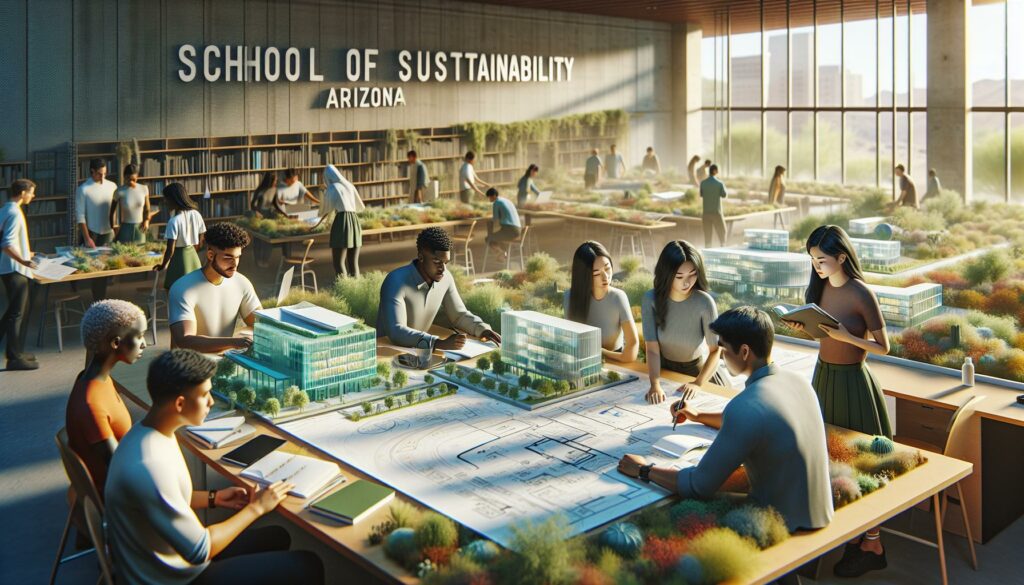In a world where climate change is the hot topic at every dinner party, jobs in environmental sustainability are shining brighter than a solar panel on a sunny day. These roles don’t just pay the bills; they help save the planet while giving you a sense of purpose that even the most satisfying slice of pizza can’t match. Who wouldn’t want to be part of the solution instead of the problem?
Jobs in Environmental Sustainability
Environmental sustainability careers encompass a vast range of professions dedicated to protecting natural resources and promoting sustainable practices. These positions exist across multiple sectors, including government, non-profit organizations, and private companies.
Roles in this field include environmental scientists, who analyze data to assess environmental problems, and sustainability consultants, who guide businesses in adopting eco-friendly practices. Conservation biologists focus on preserving biodiversity and restoring habitats. Environmental engineers design systems to reduce waste and minimize pollution.
Further, project managers oversee environmental initiatives, ensuring they meet guidelines and budgets. Policy analysts work to influence legislation related to environmental protection, while educators raise awareness and promote sustainability practices within communities.
The demand for skilled professionals continues to rise as businesses aim for sustainable operations to meet consumer expectations. According to the Bureau of Labor Statistics, employment in environmental science and protection is projected to grow by 8% from 2020 to 2030, faster than the average for all occupations.
By pursuing careers in environmental sustainability, individuals not only secure stable jobs but also contribute to global efforts to combat climate change. Each role plays a vital part in creating a sustainable future, making this field essential for the planet and its inhabitants. Aspiring professionals can find opportunities in diverse industries, fostering innovation and resilience in environmental practices.
Types of Jobs in Environmental Sustainability

Various roles exist within environmental sustainability, each contributing to a greener future. Individuals can pursue careers tied to renewable energy, conservation, and policy, among others.
Renewable Energy Roles
Solar energy specialists focus on designing and installing solar panel systems. Wind turbine technicians maintain and repair wind turbines, ensuring efficient energy capture. Biomass energy engineers develop systems utilizing organic materials for fuel production. Together, these professionals help reduce reliance on fossil fuels while supporting a sustainable energy supply.
Conservation and Wildlife Management
Conservation biologists study ecosystems and implement strategies to protect species. Wildlife managers focus on maintaining animal populations and their habitats. Park rangers oversee public lands, educating visitors about conservation efforts. Each position contributes to preserving biodiversity and ensuring ecosystems remain resilient against environmental changes.
Environmental Policy and Law
Environmental policy analysts assess the effectiveness of regulations and policies. Environmental lawyers work on legal cases involving environmental protection and compliance. Advocacy specialists engage communities in grassroots movements to influence policy change. Through these roles, professionals shape laws that promote sustainability and address climate change challenges.
Skills Needed for Success

A range of skills contributes to success in environmental sustainability careers. Technical proficiency and soft skills play significant roles in this evolving field.
Technical Skills
Proficiency in data analysis enhances decision-making for environmental projects. Familiarity with Geographic Information Systems (GIS) supports mapping and spatial analysis tasks. Understanding environmental regulations ensures compliance with laws and policies. Skills in renewable energy technologies boost efforts toward sustainable energy solutions. Additionally, knowledge of project management helps streamline initiatives, optimizing resource use to achieve goals.
Soft Skills
Strong communication skills facilitate collaboration among diverse teams. Adaptability enables professionals to navigate challenges in a quickly changing environment. Problem-solving abilities contribute to developing innovative solutions for complex issues. Passion for environmental stewardship drives motivation and engagement in sustainability efforts. Leadership qualities inspire others to participate in initiatives, promoting a culture of sustainability within organizations.
Opportunities for Advancement

Professionals in environmental sustainability can experience significant growth through various avenues. Advancement opportunities expand in line with skills, education, and networking.
Certifications and Further Education
Certifications boost credibility and expertise in environmental sustainability fields. Professionals often pursue credentials like LEED (Leadership in Energy and Environmental Design) or Certified Energy Manager. Advanced degrees, such as a master’s in environmental science or sustainability, enhance career prospects. Specialized workshops and online courses focused on emerging technologies provide additional knowledge. These educational pursuits help professionals stay current in a fast-evolving sector. Many employers value continuous learning, leading to potential promotions.
Networking and Mentorship
Building connections within the sustainability community opens doors. Engaging in professional organizations, like the National Association of Environmental Professionals, provides networking opportunities. Mentorship plays a significant role in career growth as experienced professionals offer guidance and insights. Attending industry conferences enables individuals to connect with peers and experts. Collaboration with local environmental groups fosters relationships that can lead to job opportunities. Such interactions create a foundation for professional growth and advancement within the field.
Challenges in the Field
Challenges in environmental sustainability jobs include market competition and resource limitations. These factors impact opportunities and advancements.
Job Market Competition
Competition remains fierce in the field of environmental sustainability. Many qualified candidates pursue roles, contributing to an oversaturated job market. Those with advanced degrees or specialized certifications possess a competitive edge. Networking also plays a crucial role in securing job opportunities. Emerging professionals can benefit from internships and volunteer positions to enhance their resumes. Staying informed about industry trends helps candidates tailor their skill sets to meet evolving demands.
Funding and Resource Limitations
Funding and resource limitations impact many sustainability projects and organizations. Limited budgets often hinder the ability to conduct research or implement initiatives effectively. Non-profits face challenges in securing grants and financial support for their operations. Additionally, government funding for environmental programs can fluctuate, causing uncertainty. Professionals in the field must become adept at working with scarce resources. Developing innovative solutions becomes essential to maximize existing funds and achieve desired outcomes.
Contribution to the Planet’s Future
Jobs in environmental sustainability are not just about securing a paycheck; they represent a vital contribution to the planet’s future. As the demand for skilled professionals in this field continues to rise, individuals have the opportunity to engage in meaningful work that addresses pressing environmental challenges.
With diverse roles available across various sectors, those entering this field can find their niche while making a positive impact. By cultivating essential skills and leveraging networking opportunities, aspiring professionals can navigate the competitive landscape and advance their careers. Embracing these opportunities not only leads to personal fulfillment but also fosters a sustainable future for generations to come.


